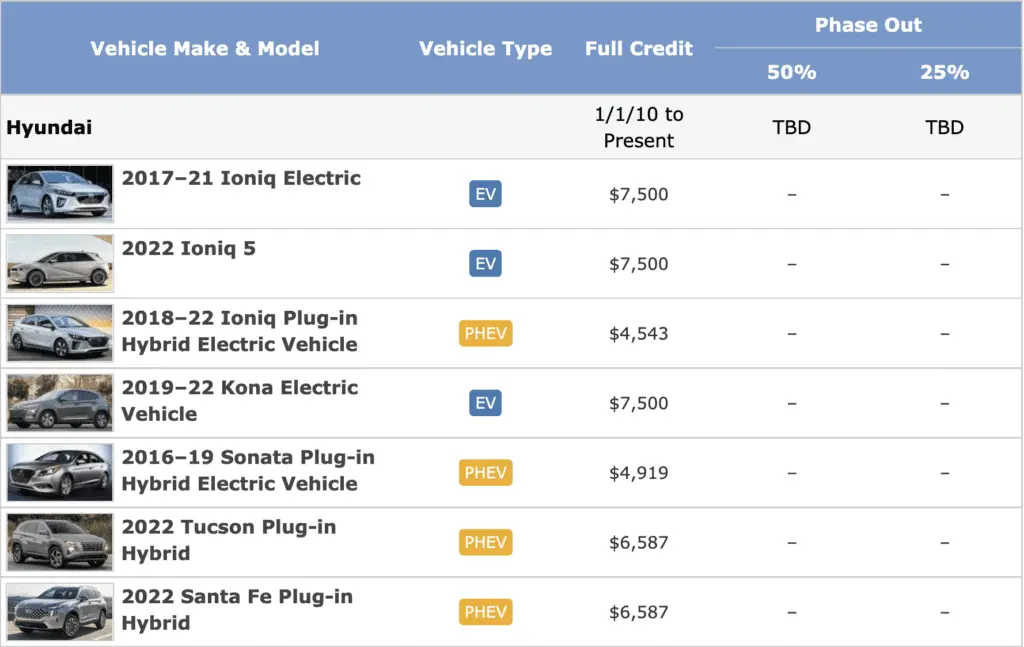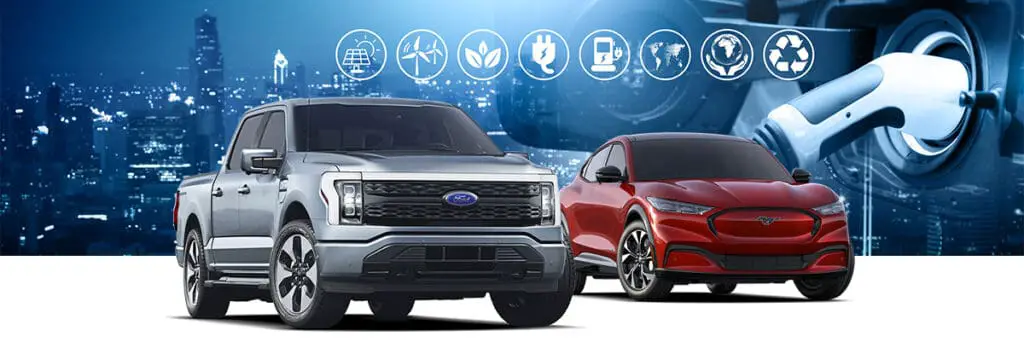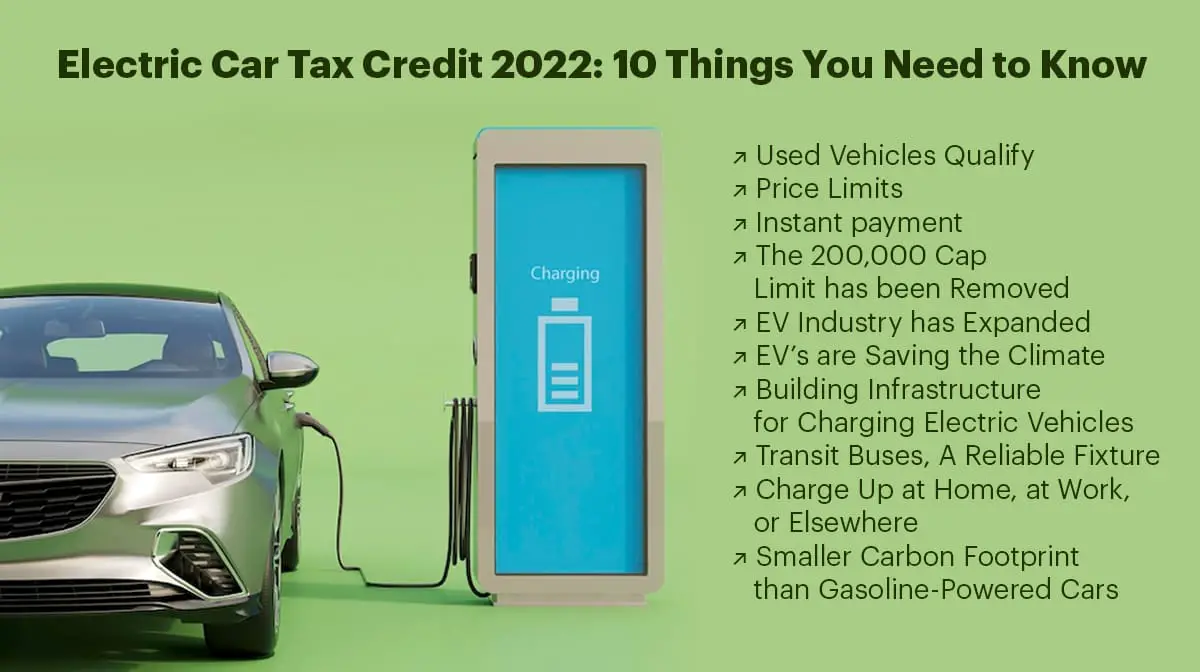Are you considering purchasing a Ford electric vehicle? Well, you’re in luck because there are some fantastic tax incentives available for you. In this article, we will give you an overview of the Ford electric vehicle tax incentives that you need to know about. From potential federal tax credits to state-specific incentives, we will cover all the essential information that can save you money and make your decision to go electric even more appealing. So, let’s get started and see how you can make the most of these incentives.
Overview of Ford Electric Vehicles
Introduction to Ford’s Electric Vehicle Lineup
Ford offers a diverse lineup of electric vehicles (EVs) that are designed to meet the varying needs and preferences of drivers. From compact cars to SUVs, Ford has embraced the electric revolution and has made significant advancements in electric vehicle technology. With their commitment to sustainability and innovation, Ford Electric Vehicles are gaining popularity among environmentally conscious consumers.
Key Features and Benefits of Ford Electric Vehicles
Ford Electric Vehicles come with a range of features and benefits that make them appealing to a wide range of buyers. Some noteworthy features include zero-emissions operation, reduced maintenance costs, instant torque delivery, and potential fuel cost savings. Additionally, Ford Electric Vehicles often offer advanced safety features, intelligent infotainment systems, and the convenience of charging at home or at a growing number of public charging stations.
Federal Tax Incentives for Ford Electric Vehicles
Explanation of Federal Tax Credit for Electric Vehicles
One of the key incentives for purchasing a Ford Electric Vehicle is the federal tax credit. This credit is designed to encourage the adoption of electric vehicles and reduce reliance on gasoline-powered cars. The federal tax credit allows eligible EV buyers to receive a credit of up to a certain amount, which helps offset the cost of purchasing an electric vehicle.
Qualifying Ford Electric Vehicle Models
To qualify for the federal tax credit, it is important to choose a Ford Electric Vehicle that meets the eligibility criteria set by the Internal Revenue Service (IRS). Currently, Ford models such as the Mustang Mach-E and the Ford F-150 Lightning are eligible for the federal tax credit. However, it is important to note that the availability of the tax credit may vary, and it is advisable to consult with a tax professional or visit the IRS website for the most up-to-date information on eligible models.
Phase-Out Period and Reduction of Tax Credit
It’s important to be aware that the federal tax credit for electric vehicles is subject to a phase-out period. Once a manufacturer exceeds a certain number of EV sales, the tax credit begins to phase out. This means that the full tax credit amount is available for a certain period, and then gradually reduces until it is completely phased out.
Claiming the Federal Tax Credit
To claim the federal tax credit for your Ford Electric Vehicle, you will need to file IRS Form 8936 along with your annual tax return. It is recommended to consult with a tax professional or review the IRS guidelines to ensure you accurately complete the necessary paperwork. Keep in mind that the federal tax credit can help offset your tax liability, but it cannot be used to generate a tax refund.

State and Local Incentives for Ford Electric Vehicles
Overview of State-Level Electric Vehicle Incentives
In addition to the federal tax credit, many states offer their own incentives to encourage the adoption of electric vehicles. These incentives can vary greatly from state to state and may include rebates, tax credits, reduced registration fees, or access to carpool lanes. It is essential to research the specific incentives available in your state to maximize your savings on a Ford Electric Vehicle.
Available Rebates and Tax Credits by State
Every state has different electric vehicle incentives, and understanding what is available in your state is crucial when considering a Ford Electric Vehicle purchase. Some states, such as California, offer generous rebates and tax credits for electric vehicles, while others may provide more modest incentives. By researching the specific incentives in your state, you can determine the potential savings and benefits of owning a Ford Electric Vehicle.
Case Studies of States with Attractive Incentives
To provide a closer look at the state-level incentives, let’s examine two states with particularly attractive programs: California and Colorado. California offers a generous Clean Vehicle Rebate Program, which provides rebates for eligible Ford Electric Vehicle purchases. Additionally, California has HOV lane access and preferential parking for electric vehicles. On the other hand, Colorado offers a substantial tax credit, as well as access to high-occupancy toll (HOT) lanes and free public charging stations. These case studies showcase the diverse range of incentives available at the state level.
Additional Ford-Specific Incentives
Ford’s Partnership with Charging Infrastructure Providers
To further incentivize the adoption of electric vehicles, Ford has partnered with various charging infrastructure providers. These partnerships aim to expand the availability of charging stations and make charging more convenient for Ford Electric Vehicle owners. By collaborating with industry leaders in charging infrastructure, Ford is working towards ensuring that drivers have access to a reliable and widespread charging network.
Access to Special Charging Rates or Discounts
Ford Electric Vehicle owners may also have access to special charging rates or discounts through partnerships with utility companies. These special rates or discounts can help reduce the cost of charging your Ford Electric Vehicle, making it more affordable and environmentally friendly. By taking advantage of these programs, you can maximize the cost savings associated with owning an electric vehicle.
Ford’s Trade-In and Purchase Assistance Programs
In addition to the federal tax credit and state incentives, Ford offers trade-in and purchase assistance programs for customers considering an electric vehicle. These programs can provide additional financial incentives or benefits when purchasing a Ford Electric Vehicle. By leveraging these programs, potential buyers can further offset the cost of purchasing an electric vehicle and make the transition to electric mobility more accessible.

Total Cost of Ownership for Ford Electric Vehicles
Comparing the Long-Term Cost Savings of Electric Vehicles
When evaluating the total cost of ownership, it is essential to consider the long-term cost savings associated with Ford Electric Vehicles. Electric vehicles generally have lower fuel costs compared to conventional gasoline-powered vehicles. Additionally, they typically require less maintenance due to fewer moving parts and a simplified drivetrain. By factoring in these cost savings, the total cost of ownership for a Ford Electric Vehicle can be lower than anticipated.
Breakdown of Charging Costs vs. Fuel Costs
One of the primary considerations when owning an electric vehicle is the cost of charging compared to the cost of fueling a traditional gasoline vehicle. The cost of charging an electric vehicle can vary depending on factors such as electricity rates and charging infrastructure availability. However, in general, electric vehicles offer the potential for lower fuel costs compared to gasoline vehicles. By understanding the charging costs and comparing them to fuel costs, you can evaluate the financial advantages of owning a Ford Electric Vehicle.
Maintenance and Repair Savings
Ford Electric Vehicles often require less maintenance and repair compared to gasoline-powered vehicles. The absence of oil changes, spark plug replacements, and transmission fluid changes can result in significant cost savings over the lifespan of the vehicle. Additionally, regenerative braking systems and simplified drivetrains contribute to fewer mechanical issues and less wear and tear. These maintenance and repair savings can contribute to the overall affordability of owning a Ford Electric Vehicle.
Factors to Consider When Choosing a Ford Electric Vehicle
Range and Battery Efficiency
The range and battery efficiency of a Ford Electric Vehicle are important factors to consider when making a purchase decision. The range refers to the distance an electric vehicle can travel on a single charge, while battery efficiency relates to how effectively the vehicle utilizes its battery capacity. It’s important to evaluate your driving needs and choose a Ford Electric Vehicle that can adequately meet your range requirements and optimize battery efficiency.
Charging Infrastructure Availability
The availability of charging infrastructure is another important consideration. While the number of public charging stations is growing, it is essential to evaluate the charging options in your area and along your regular travel routes. Additionally, you may want to consider the convenience of home charging and whether you have access to a personal charging station. By assessing the charging infrastructure availability, you can determine if owning a Ford Electric Vehicle aligns with your lifestyle and driving habits.
Resale Value and Depreciation
Resale value and depreciation are factors that should not be overlooked. It is important to consider the long-term value of your investment and how it may depreciate over time. Researching the resale value of Ford Electric Vehicles and comparing them to competitors can provide insights into the potential future value of the vehicle. While depreciation is a natural aspect of vehicle ownership, understanding the expected depreciation rates can help make an informed decision.
Comparing Ford Electric Vehicles to Competitors
When considering a Ford Electric Vehicle, it is beneficial to compare it to similar electric vehicles offered by other manufacturers. By examining factors such as price, range, features, and available incentives, you can determine the best electric vehicle option for your needs. Whether it is comparing performance capabilities, passenger space, or cargo capacity, a thorough comparison will allow you to make an informed decision and choose the right Ford Electric Vehicle.

The Future of Electric Vehicle Incentives
Potential Changes to Federal Tax Credits
The future of federal tax credits for electric vehicles is subject to potential changes. As the government continues to prioritize environmental sustainability and clean transportation, there may be adjustments to tax credits to further incentivize the adoption of electric vehicles. Staying up-to-date with potential changes to federal tax credits is important when considering the purchase of a Ford Electric Vehicle.
Emerging State and Local Incentives
State and local governments are continuously exploring new ways to encourage the adoption of electric vehicles. It is worth monitoring the incentives offered by your state or local government, as new programs may emerge or existing programs may evolve. By staying informed about emerging state and local incentives, you can take advantage of the most up-to-date opportunities to save on your Ford Electric Vehicle purchase.
Recent Policy Developments in Support of EVs
Recent policy developments have shown increasing support for electric vehicles at the federal, state, and local levels. The push for clean transportation and reduced greenhouse gas emissions has led to the introduction of legislation and initiatives aimed at promoting electric vehicle adoption. These policy developments, such as investment in charging infrastructure, may further enhance the feasibility and attractiveness of owning a Ford Electric Vehicle in the future.
Conclusion
Summary of Ford Electric Vehicle Tax Incentives
Ford Electric Vehicles offer a range of tax incentives, including the federal tax credit and various state and local incentives. These incentives can significantly offset the purchase cost, reduce long-term ownership expenses, and contribute to the overall affordability of Ford Electric Vehicles. By taking advantage of these incentives, potential buyers can make a positive impact on the environment while enjoying the benefits of owning an electric vehicle.
Importance of Researching Available Incentives
When considering the purchase of a Ford Electric Vehicle, it is crucial to research the available incentives at the federal, state, and local levels. Identifying the incentives that apply to your specific location and circumstances can help you make an informed decision and maximize your savings. Researching available incentives ensures that you are well-prepared to take advantage of the financial benefits associated with owning a Ford Electric Vehicle.
Considerations for Potential Ford EV Buyers
For potential Ford Electric Vehicle buyers, there are several key considerations to keep in mind. These include the range and battery efficiency, availability of charging infrastructure, resale value, and depreciation. It is also important to compare Ford Electric Vehicle options to competitors and evaluate the total cost of ownership over time. By weighing these factors, conducting thorough research, and staying informed about the latest incentives and policy developments, you can confidently choose the right Ford Electric Vehicle that meets your needs and aligns with your budget.



